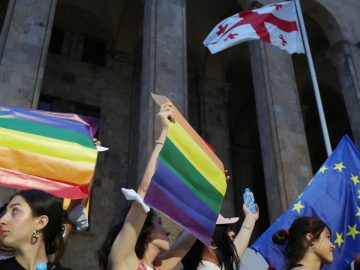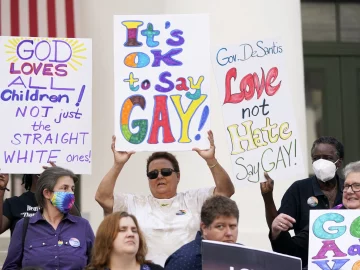Recent trends indicate a worrying rise in anti-LGBTQI+ attacks globally, a phenomenon that experts are beginning to recognize as a potential indicator of democratic backsliding. This escalation in homophobic and transphobic rhetoric and policies is particularly evident among populist leaders with illiberal tendencies, as observed in various countries.
Global Summit Insights: Reflecting on Democratic Health
At the second Summit for Democracy convened by President Joe Biden, global leaders assessed the state of democracy, with Biden optimistically noting a shift away from autocracy. However, this outlook contrasts starkly with the reality of increasing authoritarianism worldwide, as noted by organizations like Freedom House. Significantly, the summit lacked substantial discussion on how democratic regression mirrors the surge in attacks on LGBTQI+ communities.

The Williams Institute Study: Linking LGBTQI+ Rights and Democracy
A study from the Williams Institute at UCLA School of Law highlights a direct correlation between LGBTQI+ rights and democratic health. The Global Acceptance Index, covering 175 countries, suggests that attacks on LGBTQI+ rights often precede and contribute to the erosion of democratic norms and institutions.
Political Strategy and Crisis Diversion: The Use of Anti-LGBTQI+ Rhetoric
Leaders in various countries have used anti-LGBTQI+ rhetoric as a political strategy to appeal to conservative and religious voters or to distract from internal crises and corruption. The so-called threat of “gender ideology” is often utilized to frame LGBTQI+ advocacy as a subversive influence against traditional norms.
The Indonesian Example: A Case Study
Indonesia’s recent history illustrates how anti-LGBTQI+ sentiment can accompany democratic regression. The country witnessed a rise in homophobic and transphobic attacks, coinciding with President Joko Widodo’s consolidation of power and retreat from promised democratic reforms.
Brazil’s Scenario: Bolsonaro’s Homophobic and Transphobic Policies
In Brazil, President Jair Bolsonaro’s tenure provides another example of how populist homophobia and transphobia can parallel antidemocratic shifts. His administration dismantled professionalized bureaucracy in favor of military and conservative allies, alongside efforts to restrict LGBTQI+ rights.
The Broader Implications: Economic and Political Benefits of LGBTQI+ Inclusion
The relationship between LGBTQI+ rights and democracy is multifaceted. Countries with high levels of LGBTQI+ acceptance tend to have stronger democratic institutions, civil liberties, and economic prosperity. This suggests that promoting LGBTQI+ rights could have broader political and economic benefits.
Policy Recommendations: Prioritizing LGBTQI+ Inclusion
To counter democratic erosion, policymakers should focus on promoting LGBTQI+ acceptance and expanding human rights protections. This includes increasing funding for LGBTQI+-specific programs and leveraging multilateral systems to mainstream LGBTQI+ issues.
A Call to Action: Integrating LGBTQI+ Rights into Foreign Policy
The Biden administration has acknowledged the importance of LGBTQI+ rights in U.S. foreign policy. However, translating this recognition into substantial resources and political action is crucial for strengthening democratic foundations worldwide. Prioritizing LGBTQI+ inclusion aligns with democratic values and constitutes sound policy for bolstering democracy.
©unitedradiance.org




